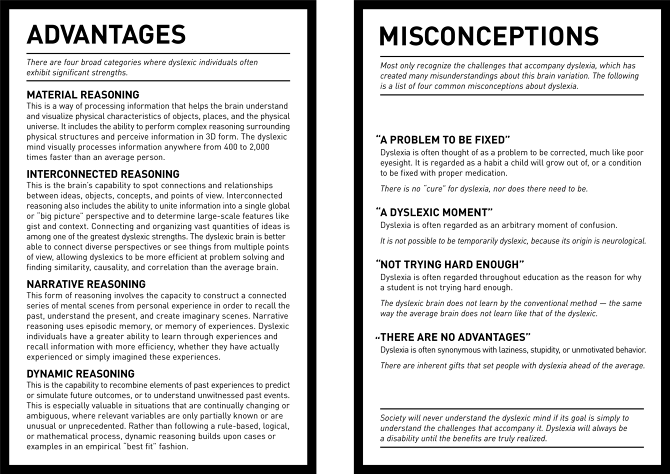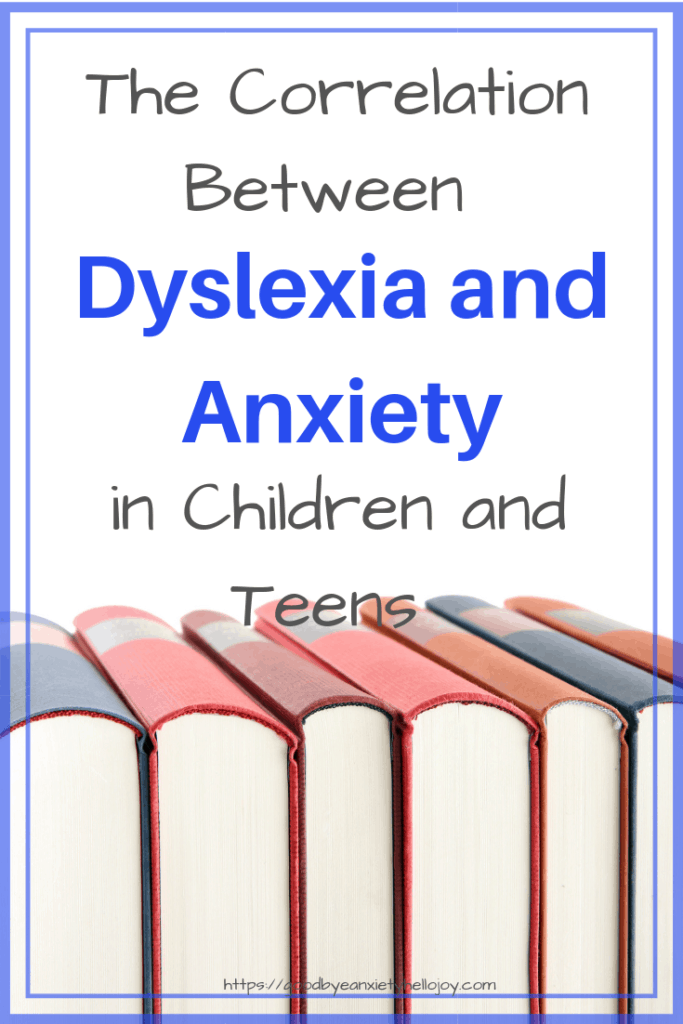The Correlation Between
Dyslexia and Anxiety in Children
Imagine going to school every day knowing that you will struggle in nearly every subject. No matter how hard you try, the words you read, the letters you write, and the math you compute will prove to be more challenging to you than to your peers. Regardless of the programs put in the place by the school, you will still feel academically inferior to those around you. This is the life of a child or teen with dyslexia. Given the hardships these children and teens face each day, it is not surprising that there lies a strong link between dyslexia and anxiety. The good news is that both dyslexia and anxiety can be well managed with the right interventions and support.
Increased Anxiety with Dyslexia
Anxiety arises from a combination of genetic and environmental factors. For a child genetically predispositioned to be anxious, dyslexia is quite often the trigger for anxiety. Sadly the majority of children with dyslexia are not identified. Without the proper diagnosis for the academic deficiencies seen at school, the child is not provided the proper and necessary interventions to improve their academic skills and their anxiety becomes pervasive in more than just the classroom setting.
Even with supports put in place for a child with dyslexia, their academic skills often remain lower than those of the children without dyslexia. These children and teens are under great stress as it takes them much longer to master a skill that a child without a learning difference. They often begin to anticipate failure, therefore approach academics with a sense of doom. As anxiety behaviors increase, their self-confidence plummets. Understanding the signs of dyslexia allows for a proper diagnosis, leading to much needed academic support. With appropriate academic supports in place, children will be less likely to suffer from anxiety due to their dyslexia.
What is Dyslexia
Dyslexia affects nearly 20% of people, accounting for 80-90% of all learning disabilities. Sadly, the majority of those with dyslexia are never diagnosed, therefore, they do not receive services that will provide skills needed for lifelong success. Dyslexia is a language-based condition that makes reading, writing (dysgraphia), math (dyscalculia), language, and executive functioning challenging due to the way that the brain is wired. It is not related to vision or a child’s intelligence. There are varying degrees of dyslexia and ways in which it can affect a person.
People with dyslexia have trouble matching the letters they see on the page with the sounds those letters and combinations of letters make. And when they have trouble with that step, all the other steps are harder. Those with dyslexia struggle to read fluently (the ability to read automatically with speed), spell properly, clearly express their thoughts through writing, memorize math facts, and perform the correct sequence of events to solve a problem and to organize their materials and stay on top of schedules.
While dyslexic learners often struggle academically, they are typically creative thinkers with strong reasoning skills. Their comprehension levels can be high when information is presented orally rather than visually. This visual below, from The Dyslexic Advantage, highlights the advantages of being dyslexic.

How to Identify Dyslexia
Dyslexia can be challenging to identify. In the past, it was believed that dyslexia could not be diagnosed until a child was in at least third grade, Today, as new research becomes available, it is thought that children as young as preschool can be identified. The sooner a child is found to be dyslexic, the sooner the proper support can be provided. This is key to long term success.
Dyslexia is much more than backward letters or confusing the letters “b” and “d”. It often falls on the parents to identify and diagnose a child with dyslexia. Schools may notice that a child is below average in their skill sets, offering testing to help identify areas of weakness, but seldom will a school perform a full evaluation with the intention of identifying dyslexia.
That means it is up to the parents to find an outside provider to test for dyslexia. It can be very expensive to pay for these evaluations, but it is necessary to have a clear picture of where your child’s strengths and weaknesses lie in order to receive the best support. There are numerous signs of dyslexia depending on the age of a child. The Yale Center for Dyslexia and Creativity provides a comprehensive list of what to look for in your child.
The Relationship Between Dyslexia and Anxiety
Anxiety, related to school, most often arises when a child or teen feels uncomfortable or lacks control over a situation. With this in mind, think how often a child or teen with dyslexia is put in uncomfortable situations during the school day. They are quite vulnerable as they have weak reading skills. They may be asked to read aloud, write while working with a group of children, or perform timed math tests where others see their results. Similarly, children with weak academic skills may be pulled out of the general education classroom for extra support. This leads to unwanted attention as they frequently leave and re-enter the classroom.
Children are very susceptible to feelings of embarrassment due to their learning differences, causing them to withdraw socially. Many with dyslexia do not understand the nature of their learning disability, therefore, they blame themselves as stupid or dumb. Depending on their age at diagnosis, years of self-doubt may have eroded their self-esteem leading to their inability to tolerate challenges within the classroom. Sadly, they may have endured teasing and unnecessary pressure that has lead to anxiety around the completion of school work, the fear of working with others, and the stress of homework without proper support.
Unfortunately, our world is full of comparison. Children with dyslexia see other’s performing well in school, while they struggle every day. Outside of school, children may be compared with their siblings leading to more feelings of inferiority. These shortcomings lead to embarrassment and defensiveness. As a child feels their abilities decrease while others increase, they begin to avoid doing work. To them, avoidance is better than failure. The cycle continues, as the child realizes that these feelings of inability, embarrassment, and stupidity will show up each day at school. At this point, dyslexia is no longer just a learning disability, it now becomes an emotional disability as well.
How to Help
It is up to parents and teachers to identify children who are showing academic weaknesses as early as possible. There are many proven methods for teaching dyslexic children to be successful in spite of their learning differences. Sadly, this is easier said than done. Parents must advocate for their child within the school setting. Included below are resources for parents to share with the school when requesting that their dyslexic child be taught in a way that is right for their learning needs. Similarly, teachers need to be trained in methods are to allow dyslexic learners to succeed.
Useful Resources for Dyslexia:
The Yale Center for Dyslexia and Creativity
Dyslexia Help Starts Here from The University of Michigan
As always, a child’s mental health is far more important than their academic knowledge. Always take time to help the child work through their insecurities by learning problem-solving strategies, participating in activities where their strengths are on full display, praising effort over outcome, and supporting the unique child that they are! The book Helping Children Manage Anxiety at School offers useful strategies for teachers and parents in supporting an anxious child or teen.

Leave a Reply